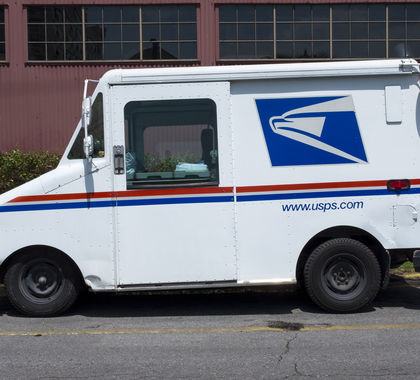This Tuesday, the Trump administration released a task force report on the “United States Postal Service: A Sustainable Path Forward.” In April, President Trump created the task force out of concern that the USPS was charging Amazon and possibly other companies’ rates for delivering their packages that did not cover USPS costs. In fiscal year 2017, USPS lost $2.7 billion despite revenues of $69.6 billion. This is part of a decades-long trend as businesses and consumers rely more on electronic communications for needs once served more by traditional first-class and other mail.
The following statements from Edward Hudgins, postal policy expert and research director for The Heartland Institute — a free-market think tank — may be used for attribution. For more comments, refer to the contact information below. To book a Heartland guest on your program please contact Media Specialist Billy Aouste at [email protected] and 312/377-4000.
“Ecommerce is an American success story. Amazon and similar companies provide every imaginable good to consumers at great prices.
“USPS revenues from delivering ecommerce packages have increased over the past decade. By law, the prices USPS charges to deliver such packages must cover all direct, ‘attributable’ costs, such as the time a mail carrier spends delivering such packages, and a share of USPS overhead costs for facilities and employees who must be paid regardless of the number of packages delivered. The Postal Rate Commission certifies that the USPS meets these pricing criteria.
“However, the task force bends over backwards to advocate a mechanism that could force the USPS to raise rates on companies like Amazon that already are carrying their share of USPS expenses. It suggests providing ‘full price transparency for all package services in order to reduce market distortion.’ Right now, companies like Amazon negotiate confidential discounts based on the business volume they bring to the USPS. This is not ‘market distortion.’ It’s good business practice. The task force also recommends creating a new package pricing model, a thinly veiled attempts to build in more ways to require companies like Amazon to hand over more money to the USPS.
“Of course, it is really consumers and small businesses, especially in America’s heartland, that will be harmed while some private express carriers gain. Moreover, charging ecommerce companies artificially higher rates in the long term can slow revenues to the USPS as customers slow their use or as Amazon and others further build out their own delivery system outside of the USPS.”
Edward Hudgins
Director of Research
The Heartland Institute
[email protected]
312/377-4000
Hudgins is the editor of “The Last Monopoly: Privatizing the Postal Service for the Information Age” and “Mail @ the Millennium: Will the Postal Service Go Private?” as well as co-author on a White Paper on “Restructuring the U.S. Postal Service The Case for a Hybrid Public-Private Partnership.”





